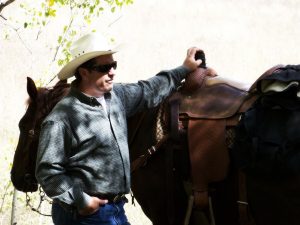Can You Fish in Colorado Without a License?


If you are planning to visit Colorado and want to fish, you will have to first check the laws in the state regarding this. If you are in the wrong, you can face penalties, so it’s essential to be aware of them.
Penalties for fishing in Colorado without a license
Fishing in Colorado can be a lot of fun, but there are also many rules and regulations. If you break one, you could be looking at some hefty fines.
Getting a license is the best way to ensure you stay within the law. A fishing license can be purchased through the Colorado Game and Fish Department website or a reseller. These licenses are valid until March 31 of the following year.
In addition to buying a fishing license, you should be aware of the state’s fishing laws. Depending on the severity of your offense, you might lose your request for a day or several months. It is not unheard of for people to be fined for taking two fish or a handful of catfish.
The state has various species to choose from, including Rainbow Trout, Brown Trout, Walleye, Green Sunfish, and more. There are even special fishing seasons to consider. For instance, the Upper Arkansas River has a unique fishing season.
Requirements to qualify for a complimentary license
There are several requirements to qualify for a complimentary license to fish in Colorado. The most obvious is being a resident of the state. This includes having lived there for more than six months in a row. In the spirit of the open season, residents are also free to fish in public waters without a license.
The requisite fishing license is available at your local Colorado Parks and Wildlife office or online through CPW. A free fishing day is offered on the first weekend in June of each year. Other requirements include being at least 16 years old and not being a first-timer.
One of the best fishing spots in the state is Lake Pueblo, State Park. The park boasts 2,000 lakes and rivers that provide a bounty of options. Fishing licenses are required, but non-residents can also purchase a five-day pass.
Another is the Wildlife Habitat Stamp. This is not an actual stamp but a certification of ownership that enables you to use more than one rod.
Recreational fishing in Rocky Mountain National Park
If you are interested in recreational fishing in Rocky Mountain National Park, it’s essential to know the rules. Fishing regulations can change at any time. It would help if you did your homework on the lake conditions before heading out.
To learn more about the park’s fishing opportunities, visit the Colorado Division of Parks & Wildlife website. It also offers a handy guide to fishing in the area.
A valid Colorado fishing license is required. The fees are listed on the state’s website.
Rocky Mountain National Park contains several lakes and streams ideal for fishing. Lake Estes is one of the most beautiful high-alpine lakes in the state.
Lake Estes Marina offers a variety of rental fishing boats. There are also bait and tackle shops at the marina.
Many lakes are closed to fishing during the ice season, but some are open. Several of the lakes have trout populations. There is plenty to catch whether you choose to fish for rainbow or brown trout.
Blue Mesa Reservoir and Lake Granby are a haven for water sports
If you’re looking for a great place to go water skiing or boating, then Blue Mesa Reservoir and Lake Granby in Colorado are perfect for you. These are two of the biggest and most popular lakes in the state. Both offer a variety of water sports and lodging options for guests.
This area is a part of the Curecanti National Recreation Area. It is located near Gunnison and Montrose. The lake offers plenty of campsites and rustic cabin accommodations.
There are 260 campsites situated around the shoreline of the lake. Lake Granby is also home to the Lake Granby Yacht Club. During the summer, boating is a popular activity on the lake. Boat rentals are also available.
The area is also prime for catching a rainbow or brown trout. The lake is stocked with these species. During winter, you can find bald eagles roosting in the area.
If you’re interested in hiking, you can visit the Red Shin Hiking Trail. You can also head to the Can Do Trail to get a panoramic view of the surrounding mountains.

